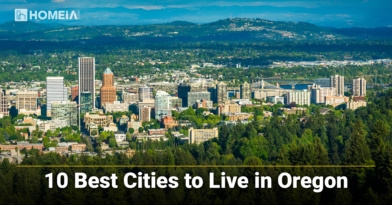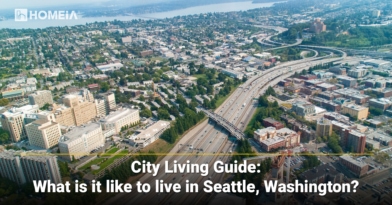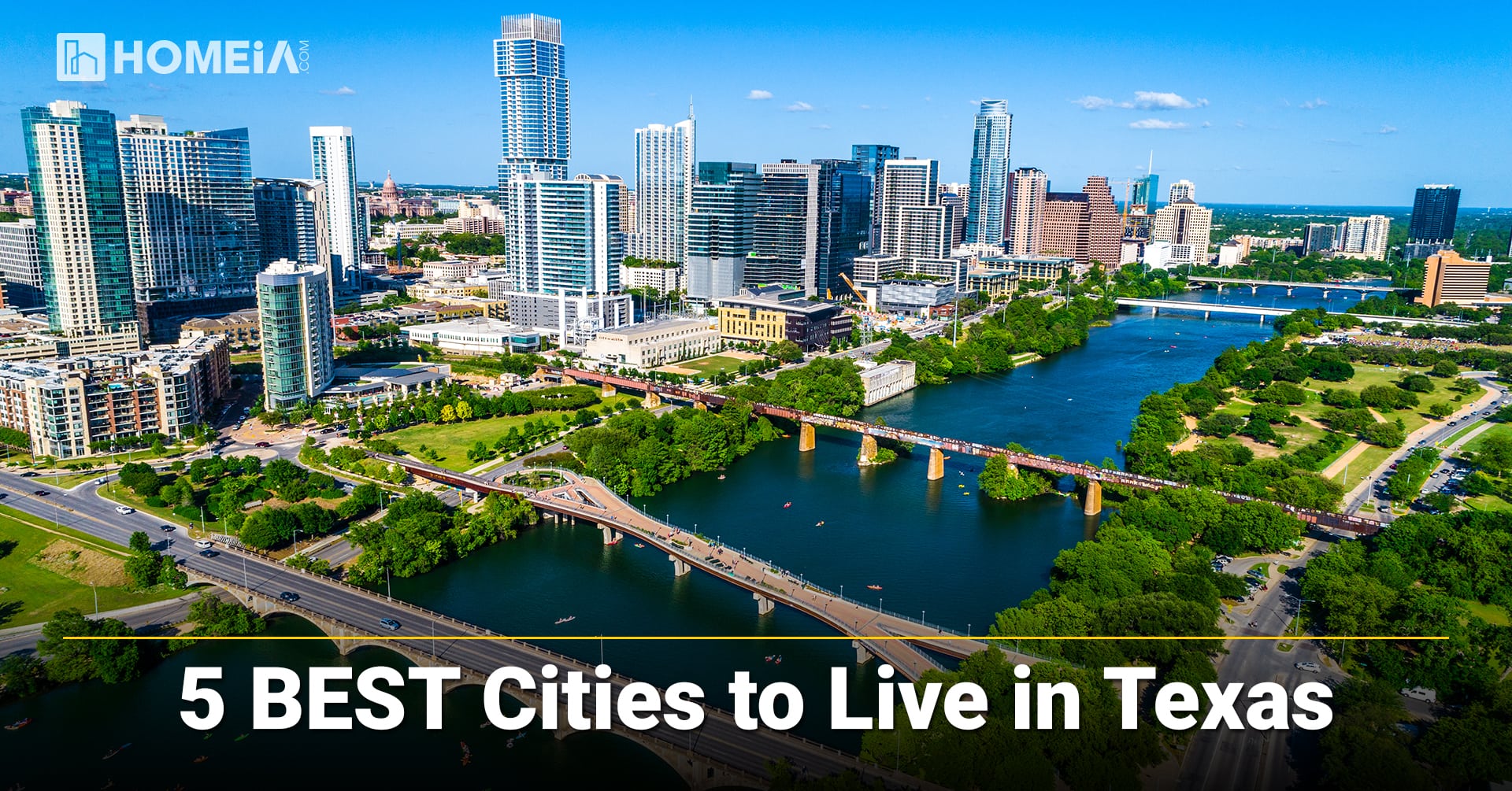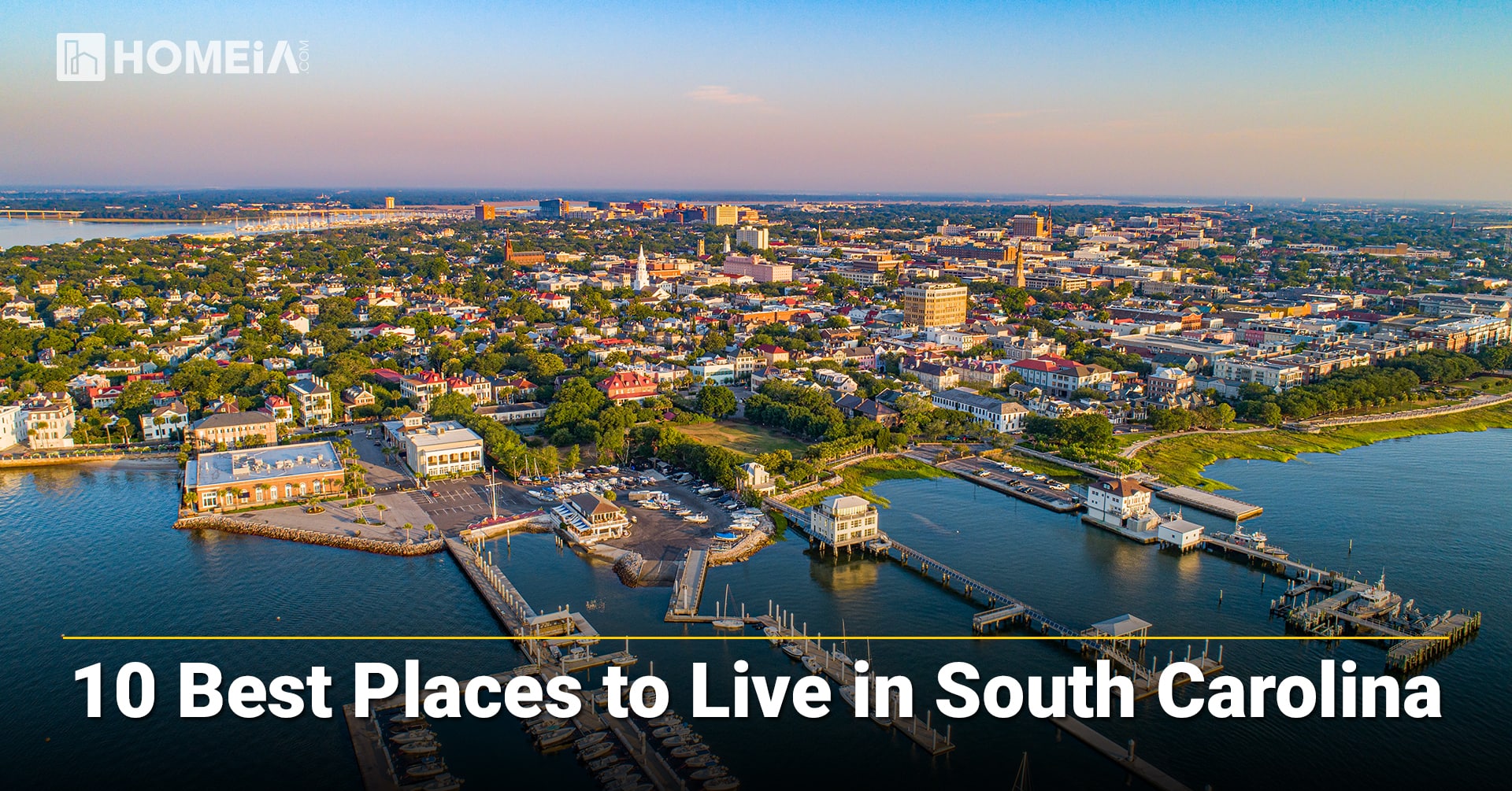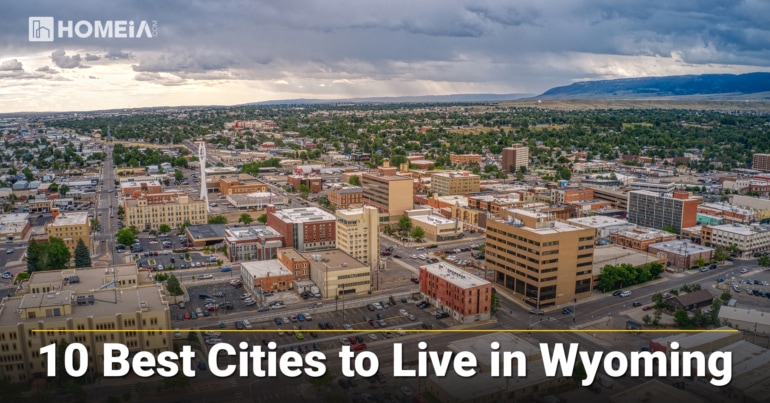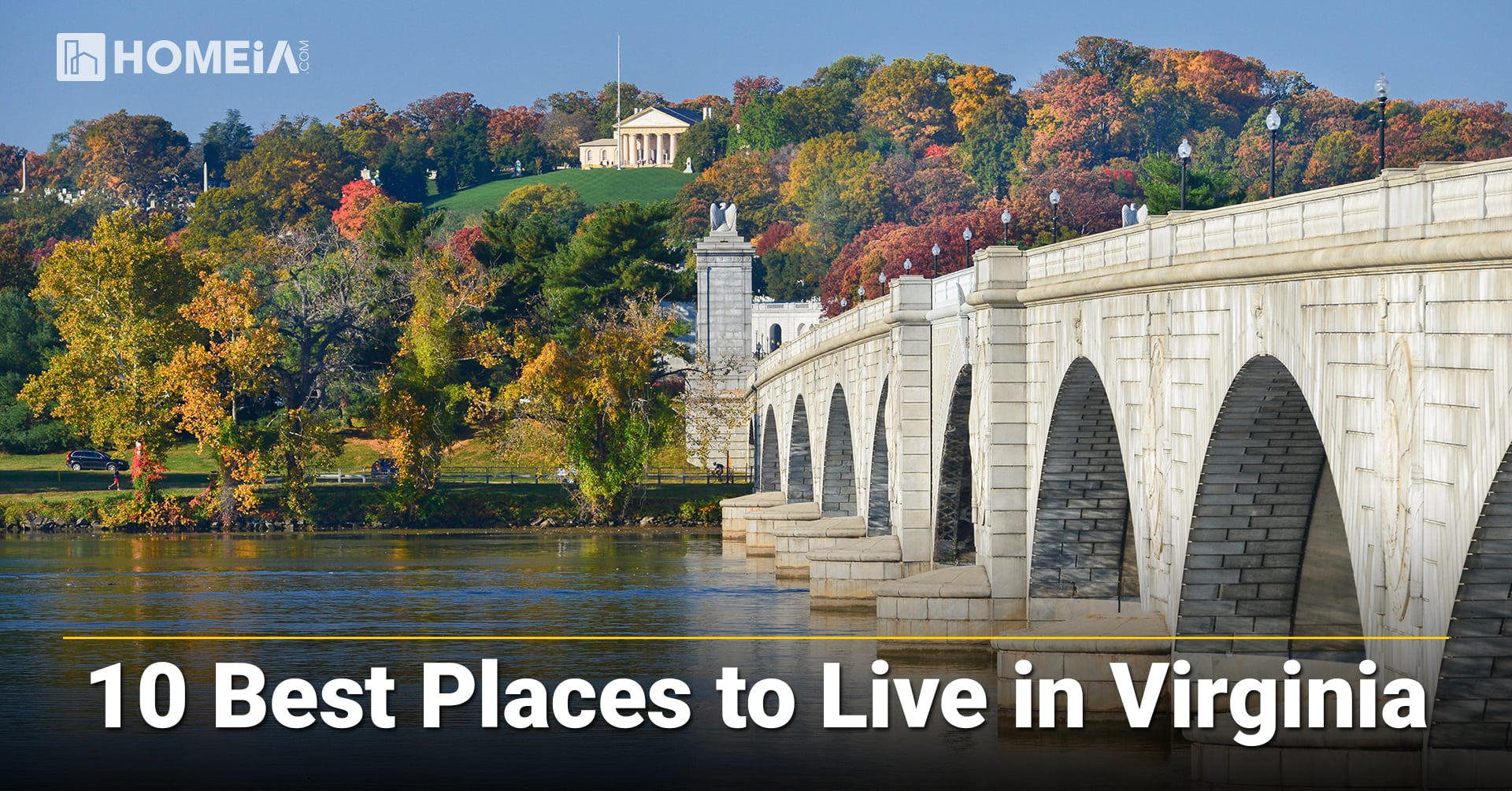7 Key Factors To Know About Living in Denver, Colorado
- Author:by The HOMEiA Team
- Category: City Living Guide
Living in Denver Colorado is the life’s goal of many people because of its high-quality living. It rates as the second-best place to live in the United States, according to U.S. News & World Report (2019). The Denver area is growing in population much faster than most of the country, increasing by almost 20% from 2010 to 2018.
The first thing to know about Denver is that it’s literally the “Mile High City”—its elevation is 5,280 feet, one mile above sea level! Denver is also the gateway to the Rocky Mountains. You can navigate the city by locating the hazy blue peaks off to the west.
A 20-minute drive will get you to the foothills, beautiful in themselves, and in an hour you can be among the majestic, snow-capped granite peaks of the continent’s largest mountain range.
Here’re the 7 Key factors you should know before moving to Denver, Colorado.
Table of Contents:
1. Lifestyle of Denver

Denver is the largest city in Colorado, with around 716,000 residents in the city itself and almost 3 million in the metro area (including Aurora and Lakewood).
Denver’s culture could be described as “city mountain west,” combining the best of urban excitement, the great outdoors, and western independence. With its proximity to the Rocky Mountains and 300 days of sun per year, it invites all sorts of outdoor activities, from biking and hiking in the warmer months to downhill skiing in the winter.
The population leans young, with a good nightlife, including lots of local breweries, music from indie rock to country, and an increasingly cutting-edge food scene. Public transportation is generally good and includes buses, commuter rail and light rail.
And thanks to its high-volume international airport, Denver benefits from ease of access, drawing business and recreational travelers.
It’s a healthy city, too, frequently rating highly on measures of population health and fitness.
10 Most Affordable Places to Live in Colorado
Given the outdoors benefits – the cost of living in Colorado is still one of the best values in the country. Here’re the 10 most affordable places to live in Colorado, taking into account the cost of living, median housing price, average crime rate and other factors that make the place unique…
2. Cost of Living

While it’s a popular and growing city, Denver has a lower cost of living than many cities of its size, including Washington, D.C., Seattle and Boston.
One person working full-time in the Denver metro area would need to make around $13.87 per hour—about $28,851 per year before taxes—to cover living costs, according to MIT’s Living Wage Calculator.
That’s achievable for most people in Denver. With a highly educated workforce, and a high proportion of two-earner households, most Denverites’ household incomes are well above the national average. Income tax rates are low; the state of Colorado has a flat income tax rate of 4.5%.
Prices in the area are fairly average in the US; a family of two working adults and two children could expect to spend about $10,000 per year on food, $13,000 on childcare, $7,000 on healthcare and $10,000 on transportation.
The best test of cost of living is whether people want to move to the area. If the lifestyle is worth the price, people will come. And Denver continues to draw new residents, especially young adults: Millennials (born between 1981 and 1997) now make up almost a quarter of the greater metro area, the largest percentage of any population group.
Recommended for you
3. Denver Housing Market

An increasing population means a high demand for housing in Denver, increasing the value of existing homes and properties. While that means prices above the national index, it also means that plenty of people are finding home ownership here to be worth the cost.
In 2010, the Denver metro area’s median sale price was just under $200,000. In the last decade, that price has more than doubled, so a mid-range home in Denver now costs around $400,000.
For a standard mortgage, that’s a payment around $1,800, compared to a median gross rent of approximately $1,400.00. With continued population growth expected in the near future, many will find buying to be a great long-term investment.
Denver’s many neighborhoods vary in affordability, meaning most new residents will find an area that fits. The neighborhoods of East Colfax, Montbello and Windsor, for example, are more affordable, while Montclair, North Park Hill and Northeast Park Hill are mid-range.
Those whose tastes and means are at the high end will find opulent and unique homes in areas like South Park Hill, Lowry Field and Stapleton.
Proximity to the downtown area will cost a premium but may draw those working in the central business district—especially with the extensive views from the city’s high-rises. For families who value space over the club scene, the suburbs (such as Aurora) offer lower-cost options and larger lots.
The 10 Best Places to Live in Oregon
Oregon is a study in contrasts. It has 363 miles of the most breathtaking coastline you’ll encounter anywhere in the world. But it also has dense forests, mountain ranges, and high desert country. Here’re the 10 Best Cities to Live in Oregon…
4. Safety & Health Care in Denver

Every city aims to protect its citizens’ health and safety, and Denver is no exception. Denver’s rates of violent crime are lower than most similarly sized cities in the United States. U.S. News & World Report gave it an index of 7.2 out of 10, putting it toward the better end of the scale.
The health care system in Denver is strong; in a recent report the Commonwealth Fund ranked the city sixth in the nation. The largest health plan in the state is the Kaiser Foundation Health Plan of Colorado, which covers over 25% of Colorado’s medically insured residents.
One of the best medical centers in the Denver area is top-rated UC Health (University of Colorado Healthcare), which is located in the neighboring suburb of Aurora. UC Health is nationally ranked in seven specialty areas.
We all know the best way to reduce health care costs is to stay healthy in the first place, and in that area Denver is thriving. It often appears on lists of the healthiest cities, and the fresh air and sunshine surely play a part.
The 10 Best Places in the USA to Retire on the Water for Less
The popularity of the waterfront can mean high housing costs and consumer prices. Luckily, for those willing to look past the likes of Malibu and Venice Beach, there are plenty of scenic spots along the country’s lakes and oceans where retirees can make a nice home even with a reduced…
5. Employment in Denver

Jobs have been plentiful in Denver in recent years, and unemployment rates in the metro area are near historic lows.
Major employers in Denver include city, county and state government (Denver is the capital), the airport, public schools, the University of Colorado System, and a number of large health care organizations, including Centura Health, Healthone and SCL Health System.
Others big businesses include telecom companies (Comcast, CenturyLink, Dish Network), Wells Fargo, Xcel Energy and Ball Corporation.
Fortune 500 company Davita Healthcare Partners is headquartered in Denver, and a number of other companies have headquarters in the metro area: Ball Corporation, Dish Network, Level 3, Liberty Interactive, Newmont Mining, Arrow Electronics, Envision Healthcare Holdings, Western Union and CH2M.
One of the newer industries in Colorado stems from its legalization of marijuana in 2012.
And if you’re looking to start a business, Denver may be the place. It’s home to many tech-focused early-stage investors and it’s an attractive place for young professionals.
Recommended for you
6. Education

Denver produces and attracts a larger educated population; an impressive 41% of residents in the metro area have at least a bachelor’s degree.
The local school system is extensive, comprising 157 public schools and 220 private schools (K-12). The area has 23 high schools listed in U.S. News & World Report’s Best High Schools.
For postsecondary education, Denver offers 9 colleges and universities. These include the University of Denver, University of Colorado Denver, Regis University, Metropolitan State University of Denver and Johnson & Wales University.
Highly regarded schools in the suburbs include Colorado School of Mines in Golden, Colorado Christian University in Lakewood, Arapahoe Community College in Littleton and Rocky Mountain College of Art & Design in Lakewood.
4 Best Places to Live in Minnesota for Families in 2024
Bordering Canada and the Great Lakes is a state fondly dubbed as the “North Star State” and “Land of 10,000 Lakes.” The state has a lot of lakes sprawled across its more than 86,000 square mile area. In a comprehensive study of cities, Minnesota is the number one state for raising a family because of its high median income, affordable cost of living and exceptional education services…
7. Climate in Denver
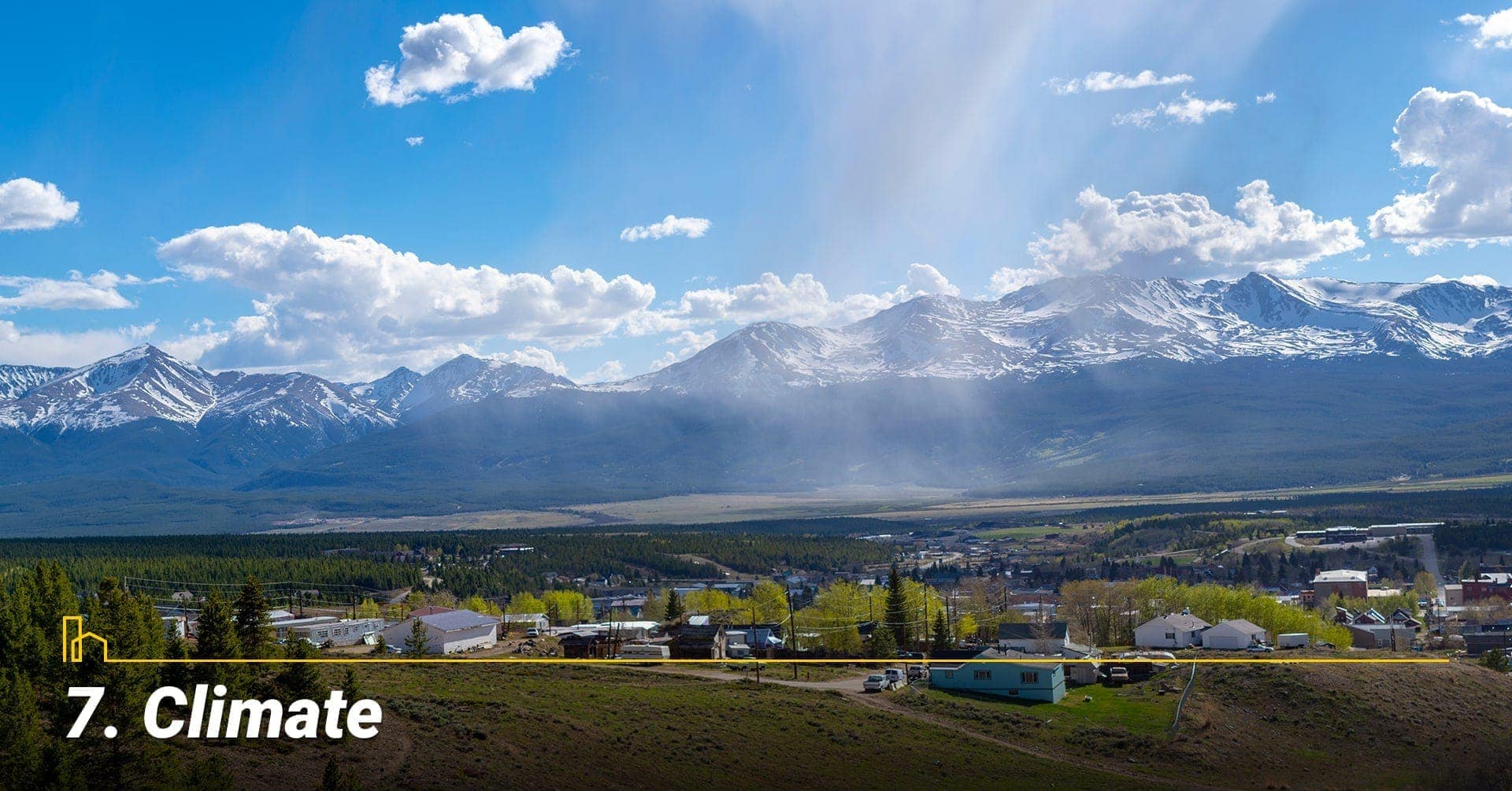
It’s true; winters in Denver can be dramatic. Snowstorms can strike early or late—both September and May have an average snowfall of one inch, though October through April is a more typical range. Seasonal snowfall averages 55 inches, and record snowstorms dump over 30 inches in one go.
But the residents here take the winter in stride; maybe it’s the snow-capped mountains in the distance all year long, or maybe it’s because the snow heralds the arrival of favorite winter sports, such as downhill and cross-country skiing and hockey.
7 Key Factors to Know About Living in Boston in 2024
Before considering your move to Boston, we have compiled a list of 7 key factors we put together for you. Boston life is about the best city life you can imagine. Relatively small, it’s often referred to as the walking city, with world-class museums, universities, theaters, and gourmet dining…
Summers in Denver are warm, with average highs in the 80s, and the nights are crisp and cool; the temperature swings quickly due to the low humidity. The drier air makes summer weather more comfortable here than in muggy, damp areas. And there’s another benefit: lots of sunny days!
To sum up
Denver is a city in the spotlight right now, and quality of life and happiness indicators show that it’s doing something right to earn the attention. It’s a growing city for business and its central location in the country makes it an ideal hub between the east and west coasts.
With the mountains always in the background, it’s an attractive location for single life, family life and business. And for the most affordable cities to live in Colorado here is the list we compiled for you.
What is It Like Living in Seattle, Washington?
Seattle is a beautiful port city on the Puget Sound in the northwestern U.S. state of Washington, 100 miles south of the Canadian border. As the largest city in the state (and the Pacific Northwest for that matter), Seattle is heavily endowed with natural resources. This hilly city earned…





